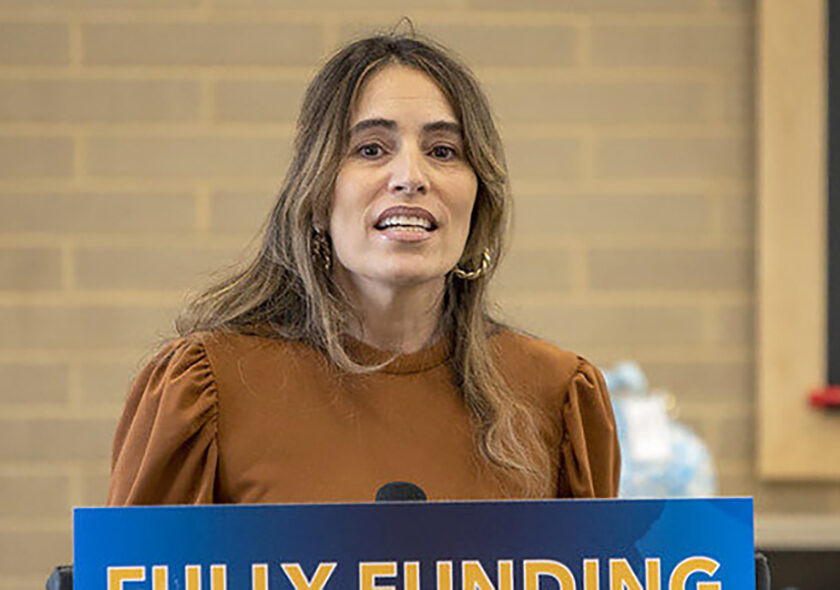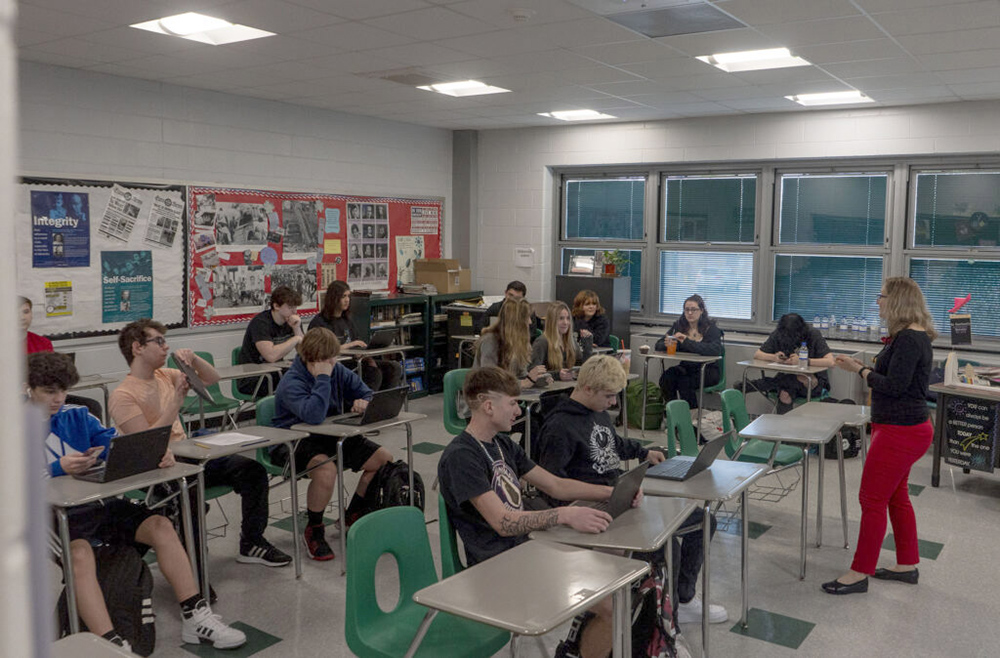By Sophie Nieto-Munoz,
newjerseymonitor.com
New Jersey lawmakers remain on the hunt for new solutions to the state’s longstanding teacher shortage, with Assembly Democrats introducing a package of 12 bills intended to recruit people to work in education.
But education officials and lawmakers don’t know how long it will take to fill the gap of missing educators — which has yet to be quantified.
“I wish I had the crystal ball, but what I can tell you is that one of these bills is not enough. Twelve of these bills are not enough,” said Assemblywoman Pamela Lampitt (D-Camden). “The longer we wait to do anything about it, it’s that much longer our education system will suffer.”
The industry has been shedding educators and other school workers for years, but the pandemic aggravated the problem, with teachers burning out and quitting or retiring early. Over the last two years, legislators have held hours of hearings and introduced several dozen bills to attempt to solve the issue.
Gov. Phil Murphy established a task force on public school staff shortages last year, and the 25-member panel came out with recommendations in February. The 12 bills introduced Thursday address its suggestions.

Seven of the bills advanced unanimously out of the Assembly Education Committee, which Lampitt chairs. Those bills would allow students to more easily apply county college credits to teacher certifications, provide tax deductions for classroom expenses, and require the state Board of Education to approve expedition of teacher certifications for paraprofessionals.
Other bills moving forward would create programs to lower the barrier of entry into the field, like a reimbursement fund for certifications costs, student-teacher stipends, and tuition remission for students pursuing an education career.
“We want to do better. We want to be able to say, ‘You know what, we’re going to support you. We’re going to give you extra money to be able to go into the classroom, but you’re going to have to tell us that you’re going to work for us for a number of years afterwards,” Lampitt said. “We need to remove some barriers, and everyone thought these were good ideas.”
Sean Spiller, head of the New Jersey Education Association, the state’s largest teachers union, supports the bills and on Thursday called the shortage a “complex problem that does not have a single solution.”
Some laws relaxing certification requirements have gone into effect, like doing away with the controversial edTPA testing requirement and a pilot program to allow teachers who don’t meet certain criteria to apply for certification. But officials say it’s still too soon to tell whether they’ve had any impact.
“I think some of the things we’ve done with certification and opening up those pathways, I think that we’re going to see some positive streams from that,” said Sen. Teresa Ruiz (D-Essex). “But it’s not going to be an immediate thing.”
Ruiz said the shortfall should remain a top priority of the Legislature. This legislative session, she’s sponsored at least nine bills to address the teacher shortage, but all have stalled. One of them would temporarily lift the in-state residency requirement for public school teachers for three years.
“With removing the residency piece, you’d be able to start interviewing people who are not in New Jersey that are actually interested in filling these positions,” she said. “We can’t do that right now, and that truly impacts a great portion of the districts.”
A law signed in January 2022 requires the state to issue a report on teacher workforce projections for the next three to five years. It was due March 1, and lawmakers say they have yet to see it.
“We get the information from all of our superintendents, so we know that it’s a real thing. But we need to be able to identify where the vacancies are and how many we have in the state,” Ruiz said. “I don’t know if we have that right now. I don’t know that there’s a number we can point to.”
The Department of Education did not respond to a request for comment.






